Immersive sound formats like Dolby Atmos, DTS:X, IMAX Enhanced, AURO:3D and 360 Reality Audio are making their way into more movies, TV shows and music releases. And while you can experience immersive sound or spatial audio through headphones, the best way to experience immersive surround sound is out loud, with speakers, preferably lots of speakers. A/V receivers that support Dolby Atmos and other immersive sound formats have become more affordable, with entry level models hovering around the $500-$600 range and more advanced models with nine channels of amplification on board starting at around $900. But all the amplification channels in the world won’t do you any good without speakers. And that’s where Focal’s Sib Evo loudspeakers come in.

High-end speaker maker Focal started in France in 1979. While many loudspeaker brands design their speakers using off-the-shelf speaker drivers made by other companies, Focal did the opposite. The company designed and manufactured their own individual speaker drivers and components first, and built their award-winning high-end loudspeakers using their own components. That tradition continues to this day. The Focal Sib Evo speakers represent the entry point into Focal’s home theater speaker line.
Spec it Out
There are two distinct speakers in the Sib Evo line-up, plus a powered subwoofer. The speakers are the Sib Evo 2.0 satellite speaker and the Sib Evo Dolby Atmos 2.0 satellite speaker. The Sib Evo 2.0 is a compact and stylish two-way bass reflex design featuring a 5″ Polyflex woofer and a 3/4″ soft dome tweeter.
The Sib Evo has a rated frequency response of 70Hz – 25kHz +/-3 dB. The Sib Evo Dolby Atmos 2.0 is actually two speakers in one: a forward-facing 2-way design which uses the same woofer and tweeter as the Sib Evo, plus an upward-facing 4″ full range driver which reflects height channel sound off the ceiling.
The two-way forward-facing speaker has a rated frequency response of 65Hz -25kHz +/-3 dB while the rated frequency response of the up-firing speaker is 90Hz -20kHz.
Both the Sib Evo and Sib Evo Dolby Atmos speakers have a sensitivity rating of 90 dB, which means they are reasonably easy to drive. An A/V receiver rated for 70 watts per channel or higher should be sufficient to power this system in an average sized listening room.

The Sib Evo and Sib Evo Dolby Atmos speakers are similar in design, but the Dolby Atmos version is a bit larger to accommodate the extra up-firing driver. The Sib Evo can be mounted upright or rotated on its side for use as a center channel speaker. A rubber pad supports the speaker in either position. When placed horizontally, the stylized “F” Focal logo can be rotated to match the speaker’s orientation. Or rotate it just for fun if you prefer the look of a sideways logo.

Overall, the Sib Evo speakers exude quality and style except in one aspect; the speaker connections are spring-loaded push terminals. These terminals only support pins or wire up to about 16 gauge in diameter. At this price point, I would have expected 5-way binding posts with support for banana plugs. But alas, that is not the case here.

To handle bass duties, Focal makes a matching powered subwoofer, the Cub Evo. The Cub Evo is roughly cube-shaped, about 12″ on each side and features an 8.25″ driver powered by a 200 Watt class D amplifier. The Cub sub features adjustable level and crossover as well as adjustable phase (0/180 degrees). The rated frequency response is 35Hz – 150Hz +/-3dB, and is down 6 dB at 30 Hz.

The Sib Evo speakers and Cub subwoofer are available individually, ala carte, or as a 5.1.2 channel home theater pack. For our review, we put together a 7.2.4 channel system comprised of three Sib Evo speakers (for center channel and side surrounds), four Sib Evo Dolby Atmos speakers (front left/right and height channels, rear left/right and height channels) plus two of the Cub Evo subwoofers.
The most cost-effective way to put together this system is to buy the 5.1.2 system, and then add 2 of the Sib Evo Dolby Atmos speakers plus one additional Cub Evo subwoofer. Total list price of the system is $3,197. The smaller 5.1.2 channel version sells for about half that ($1,699).
Speakers Included in this Review:
- Focal Sib Evo 5.1.2 Speaker Pack (List: $1,699) (3 Sib Evo, 2 Sib Evo Dolby Atmos, 1 Cub Evo) – Available at: Crutchfield or Amazon
- Focal Sib Evo Dolby Atmos speakers (List: $999) – Available at Crutchfield
- Focal Cub Evo subwoofer (List: $599) Available at: Crutchfield or Amazon
While there are only seven speaker cabinets in this set, plus the two subwoofers, the system actually reproduces thirteen channels of sound (seven speakers at ear level, two powered subwoofers plus four up-firing height speakers). To drive this system, you’ll need a receiver or power amp capable of delivering eleven channels of powered output. We paired the system with Denon’s AVR-X3800H receiver ($1,699). It includes eleven channels of processing but only nine powered speaker outputs. So to power the last two channels, we added a 2-channel power amp (or technically two monoblock amps, from Marantz).
If your particular receiver supports fewer channels of output, consider a 5.1.2, 7.1.2 or 5.1.4 channel configuration instead. The Denon receiver’s rated power is 105 Watts/Channel in stereo mode, which was more than enough to drive the Focal system to cinematic sound levels in our roughly 15 x 16 foot listening room. Also, because this system uses up-firing height speakers, you’ll need to have flat reflective ceilings, no more than 12 feet high in order to get the best height effects.
If your listening room has high or irregular ceilings, you should consider a system with separate ceiling or wall-mounted height speakers instead.
The Set-Up
For initial testing, I dropped the basic Sib Evo 5.1.2 system in place of my previous review speakers (the NHT SuperZero 5.1.2 system). Layout was the same so I could just plug and play and be up and running quickly. I tested these using the Sony STR-AZ1000ES receiver which is rated for 70 WPC with two channels driven. The Sony receiver has seven channels of amplification on board and supports Dolby Atmos in a 5.1.2 channel configuration.
After a couple of days of break-in, I performed the receiver’s DCAC IX calibration routine. This measures output levels and positions of the speakers and adjusts the receiver’s levels accordingly. Other than the bass being set too low (which I adjusted manually after measuring with an SPL meter), the auto calibration did a good job with speaker level adjustment.

Compared to the previous NHT speaker system, I noticed a slightly different overall sonic character with the Focal speakers. The high end was a bit less strident on the Focal system, and bass was not quite as extended (not surprising given the smaller driver and cabinet volume of the Focal subwoofer), but the bass was well integrated with the satellite speakers.
Pricing of the Focal 5.1.2 system is slightly higher than the NHT system and both systems did a good job reproducing immersive soundtracks in Dolby Atmos, DTS:X and 360 Reality Audio.
But the Focal system performed better overall with music playback as well as natural reproduction of male and female voices. The overall immersive soundscape on the 5.1.2 system was compelling, but a bit light in its reproduction of the third dimension (height) due to it only having two height speakers. We’re gonna need more speakers…
Onward to 7.2.4
I’m not gonna lie: setting up a 7.2.4-channel surround sound speaker system is a chore. And doing this with spring loaded speaker terminals adds to the annoyance factor. Most of the systems I review are 5.1.2-channel or 5.1.4 channel speaker bundles with decent quality 5-way binding posts that accept banana plugs. To hook up the Focal system, I needed to measure out, cut and strip eleven lengths of speaker wires and twist up the bare wire ends to securely fit into the Focal terminals.
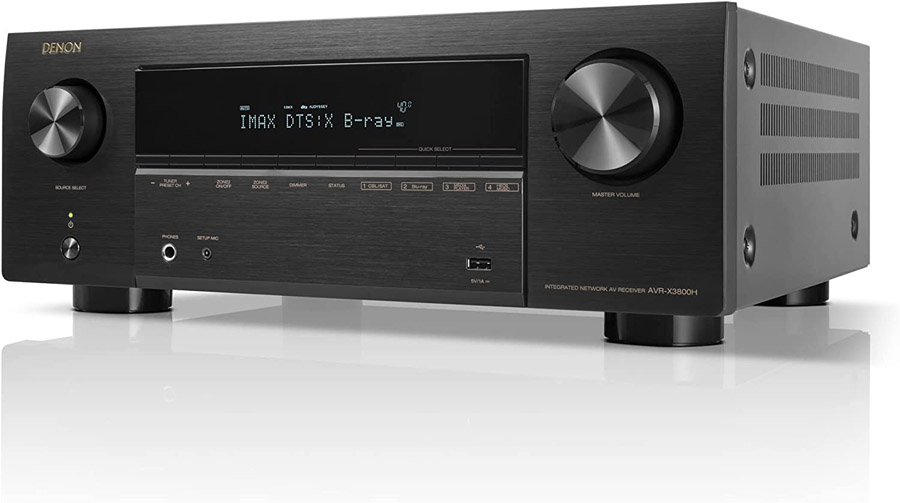
To make things a bit easier, I used some high quality 4-conductor pure copper speaker wires from Monoprice. You can get a 250-foot spool of this stuff directly from Monoprice for about $120 in a 16AWG (16 gauge) diameter. With 4 conductors per wire, you can route both the main channel and height channel cables for each Sib Evo Dolby Atmos speaker in a single cable. So instead of having to run 4 wires to the back of the room, I only needed to run two. The same is true for the front left and right speakers with their integrated height channel speakers. Also, the 16-gauge pure stranded copper wires fit snugly into the Sib Evo’s spring-loaded speaker terminals. And the cable is also CL3 rated for in-wall use so you can make it all disappear if you put in the effort to snake the wire through the walls or ceiling.

Subwoofer placement was also tricky as I had ambitiously requested two subwoofers to try to maintain a balanced bass response throughout the room. By using two subwoofers, one can better compensate for standing waves and room modes, but it does take a bit of trial and error in subwoofer placement. In my particular room, I got the best performance with both subwoofers along the front wall, about 10 inches out and close to the position of the front left and right speakers.
Once I got what I considered to be a good balance of bass throughout the room, I ran through the receiver’s Audyssey MultEQ XT32 calibration routine. This adjusted the speaker levels within the room. After the Audyssey set-up was complete, I did some additional speaker level measurement and adjustment using test tones and an SPL meter.
Again, the main adjustment here was a slight tweak to the subwoofer levels, raising each by a couple of decibels.
Listen Up!
After a few days of break-in, I ran the system through its paces using a variety of different sources: movies encoded in Dolby Atmos and DTS:X on Blu-ray Disc and UltraHD Blu-ray, 4K Dolby Atmos streams from Disney+, Netflix and Apple TV+, Dolby Atmos and lossless high resolution stereo music streams from TIDAL, multi-channel music tracks on DVD-Audio and SACD, and two channel high res audio files downloaded from HD Tracks.

Running through my Dolby Atmos favorites playlist on TIDAL, I was immediately drawn into EDM tracks from deadmau5, kx5, et. al. The track “Alive” is just huge on the Focal system, with sound placed all over the room and much of it in constant motion. When the bass dropped, the two Focal subs were more than happy to comply with deep synth bass tones resonating through the room. As with most compact systems, the bass didn’t extend into the deepest octaves, but it sounded and felt solid and well integrated with the rest of the system.
The Dolby Atmos mix of “Alive” has a lot going on, with synths and vocals and percussion appearing in multiple points in space concurrently. The Focal system did an excellent job presenting this mix in a cohesive way, with all the elements coalescing into a seamless whole. When a synth snare drum circled the room, it maintained its sonic character throughout its journey, creating a believable and enjoyable three dimensional audio experience.
Another track from deadmau5 and KX5, “Bright Lights” presented a similar experience; a multi-layered immersive extravaganza of sound, with an up-beat feel that got my toes tapping.
Moving on to some good old-fashioned southern rock from Lynyrd Skynyrd, the Dolby Atmos mix of “Sweet Home Alabama” on TIDAL sounded fantastic on the Focal system. This remix puts the listener right into the performance and exposes sonic elements I’d never noticed before in the hundreds of times I’ve listened to the original stereo track. The Police’s “Every Breath You Take” from the Dolby Atmos remastered “Greatest Hits” album offers more subtle use of the surround speakers, slowly moving the focus out from the front wall and into the room as the song progresses.
“The 30th” performed by Billie Eilish is a simpler song, mostly vocals and guitar, but the Dolby Atmos mix on TIDAL builds to an immersive crescendo at the bridge which gives the song so much more emotional impact than the stereo mix. Also from Eilish, “Bad Guy” in Dolby Atmos creates a true hemisphere of sound around the listener with synths and vocal parts appearing from all around the listener. It’s so much more engaging than listening in stereo.

One of my favorite Dolby Atmos music tracks, Ed Sheeran’s “Shape of You” didn’t disappoint on the Focal system. Like the Police track, Sheeran’s song builds from a mostly front-heavy soundstage to a more centered mix expanding to use all of the space in the room with instruments, voices and percussion building in layers until the dramatic and abrupt ending. This song is a masterpiece in its use of immersive audio and it was well captured by the Focal speaker system.
On 5.1 channel musical content, I like to bring out a DVD-Audio called “Women on Top” from Silverline Records. This disc includes remastered/remixed songs from female-fronted bands including Pat Benatar’s “We Belong” and The Motels “Only the Lonely.” These lively multi-channel music mixes envelop the listener with music in an exciting and dynamic reinterpretation of these 80s classic tunes. I find the Pat Benatar mix in 5.1 to be superior to the more recent Dolby Atmos remix with synth tones and drums echoing around the room while Benatar’s powerful vocals deliver an impactful emotional performance. I upconverted the 5.1 mix using Dolby Surround to make full use of the entire listening space. On the Focal system, this created a very engaging listening experience.
The Focal system can do stereo too. I put on a few 2-channel albums on, including Pink Floyd’s “Dark Side of the Moon” and the “Blade Runner” soundtrack by Vangelis on TIDAL, as well as high res downloads of Daft Punk’s “Random Access Memories” and Lorde’s “Pure Heroine.”
These cuts sounded wonderful in stereo with excellent vocal rendition and a nice blend between satellites and subs. Compared to some other comparably priced systems, there may be a slight lack of treble extension but instruments and voices sounded lush and full on the Focal system.
Watching the Movies
Moving on to movies, I cued up my go-to Dolby Atmos film, “Gravity” on Diamond Luxe Blu-ray Disc. This film highlights the importance of tonal matching across all speakers. After the deafening white noise crescendo at the introduction, we begin to hear the voices of astronauts communicating with mission control as their conversation fades in from a deep black silence. As the space shuttle and astronauts approach, individual voices emerge from different points in space, and move around the room to match the on-screen motion.
In Dolby Atmos, each of these voices can be pinpointed in space, which makes the conversation more intelligible than it is in the standard 5.1-channel mix. As the voices move all over the room, they maintain their exact same tonal characteristics, which draws us into the action and enhances the feeling of immersion.
“Gravity” sounded so good that I got sucked into watching the whole film. And after the claustrophobic feel of the film with characters trapped in spacesuits in the silent void of space, the wide open ambience captured in the final scene back on earth provided a welcome release.

The newly released 4K Ultra HD Blu-ray discs of the “Indiana Jones” films now feature a remixed and remastered lossless Dolby Atmos soundtrack. This brings a new level of immersion to the films. John Williams’ sweeping scores have never sounded so expansive. And the perils Indy faces in the jungle temple, including darts whisking from all directions and the huge stone ball bearing down upon him, have never sounded so perilous.
Watching the first film on a 117-inch CinemaScope screen, 4K projector and the Focal 7.2.4 channel system brought me back to 1981 when I first experienced the film in a movie theater, except now the movie both looks and sounds so much better than it did four decades ago. With home equipment this good, who needs movie theaters anymore?
As a final test, I wanted to see how AURO-3D content sounded on the system. While there isn’t much to choose from, I do have an AURO-3D demo disc from 2014 that has several clips of test material. AURO-3D prides itself on its realistic well-defined height channel reproduction. The format’s recommended speaker layout includes 4 height speakers as well as a central “voice of god” speaker directly over the main listening position.
With the Denon receiver decoding the material and played back through the Focal system, AURO-3D mixes came through cleanly and clearly with a well defined sense of height. The four up-firing height speakers in the Sib Evo Dolby Atmos speakers even combined to create a realistic-sounding phantom “voice of god” channel directly above the listener. If you’ve got the right room for it, the Focal Sib Evo system can definitely create a palpable and three dimensional sense of height in the room on well mastered immersive sound content.
Pros:
- Compact, attractive form factor won’t dominate your listening room
- Excellent sound quality on movies and music
- Seamless integration between satellites and subwoofers
Cons:
- Spring-loaded speaker terminals can be a bit tricky
- Non-detachable up-firing drivers limit placement and room options
- Bass could be a bit more extended
- Fairly expensive in a 7.2.4 configuration
Final Thoughts
With the Sib Evo Dolby Atmos speaker system, Focal has shown that you can put together an attractive and great-sounding immersive surround sound system without the need for big boxes that dominate your living room. Featuring exceptional vocal reproduction and a seamless and cohesive blend between satellites and subwoofers, the Focal Sib Evo Dolby Atmos system makes an excellent choice for music and movies.
For smaller rooms, the 5.1.2 bundle offers an affordable and easy-to-drive system that will work with any Dolby Atmos-capable home theater receiver. With a more robust 7.2.4-channel configuration, the immersiveness of the system and the evenness and extension of bass reproduction is notably improved but with a slightly less compelling value proposition.
But if your room layout works with up-firing speakers, and you’ve got a more flexible budget, the 7.2.4 channel Focal Sib Evo speaker system will rock your world.
Where to Buy:
- Focal Sib Evo 5.1.2 Speaker Pack (List: $1,699) (3 Sib Evo, 2 Sib Evo Dolby Atmos, 1 Cub Evo) – Available at: Crutchfield or Amazon
- Focal Sib Evo Dolby Atmos speakers (List: $999/pair) – Available at Crutchfield
- Focal Cub Evo subwoofer (List: $599) Available at: Crutchfield or Amazon


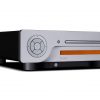
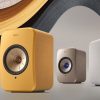

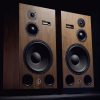
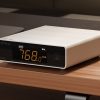












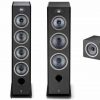


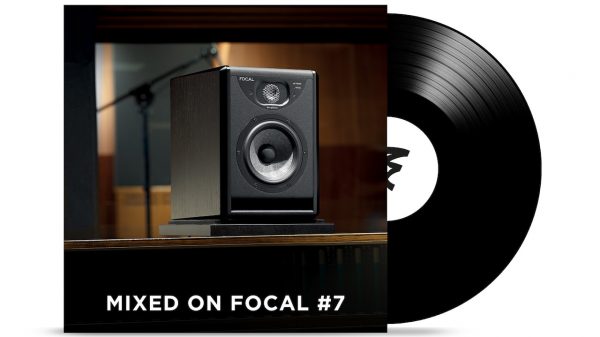
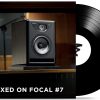











Jonathan
December 1, 2024 at 10:38 pm
What higher-end Onkyo receiver would you use here to avoid the need for the extra amp for the Denon? Again to power a 7.2.4 channel in the same size room.
Chris Boylan
December 2, 2024 at 4:56 pm
Onkyo TX-RZ70 or Denon AVR-X6800H can do 11 channels out of the box, with no external power amp required.